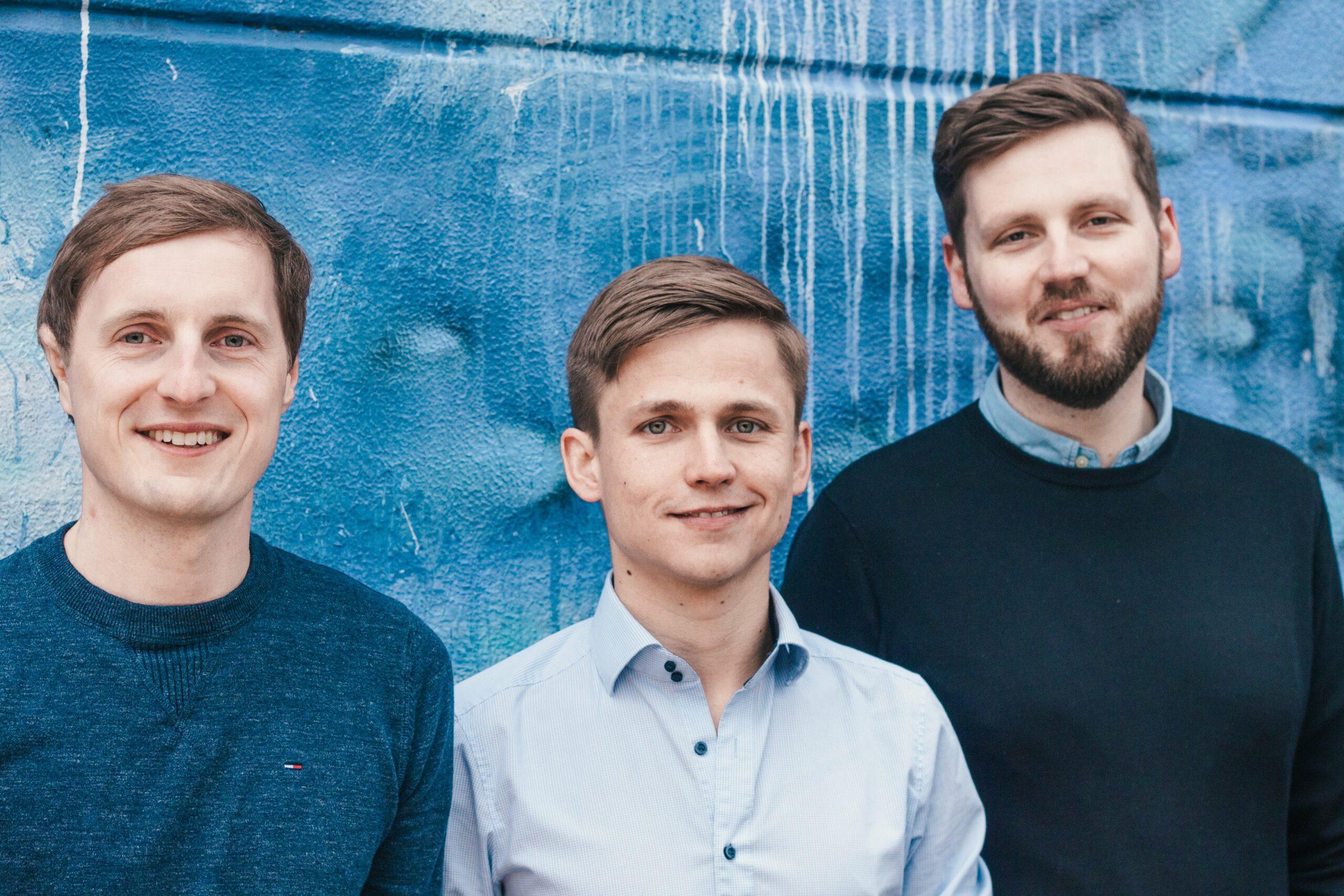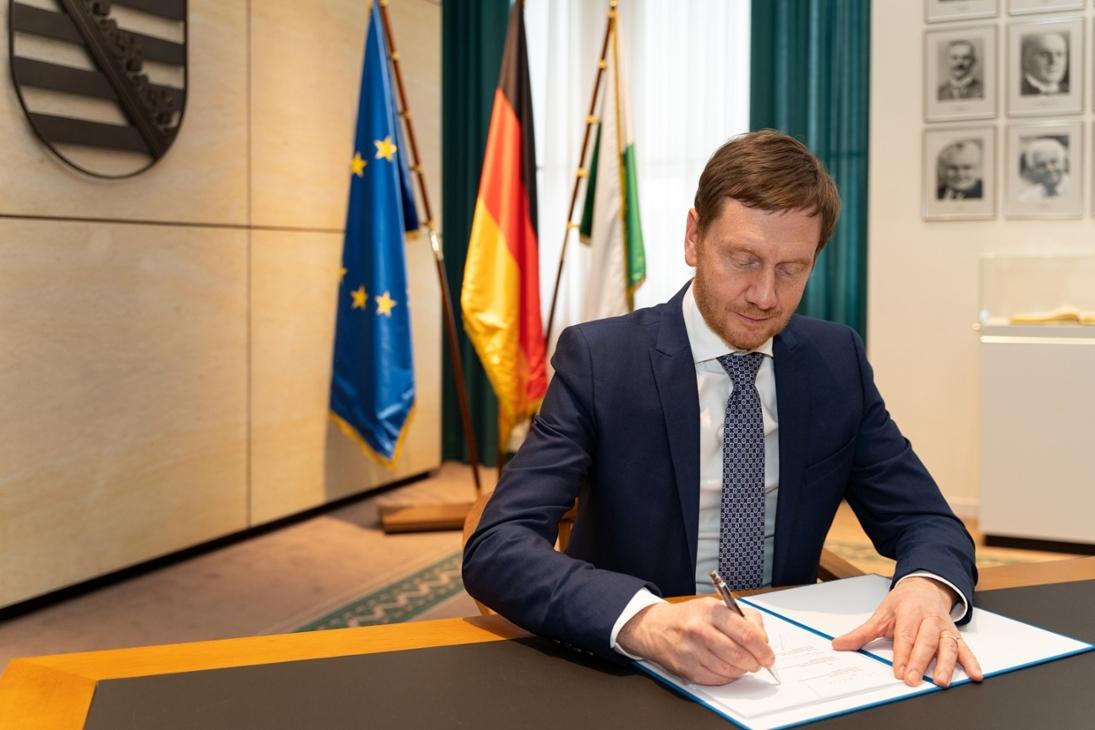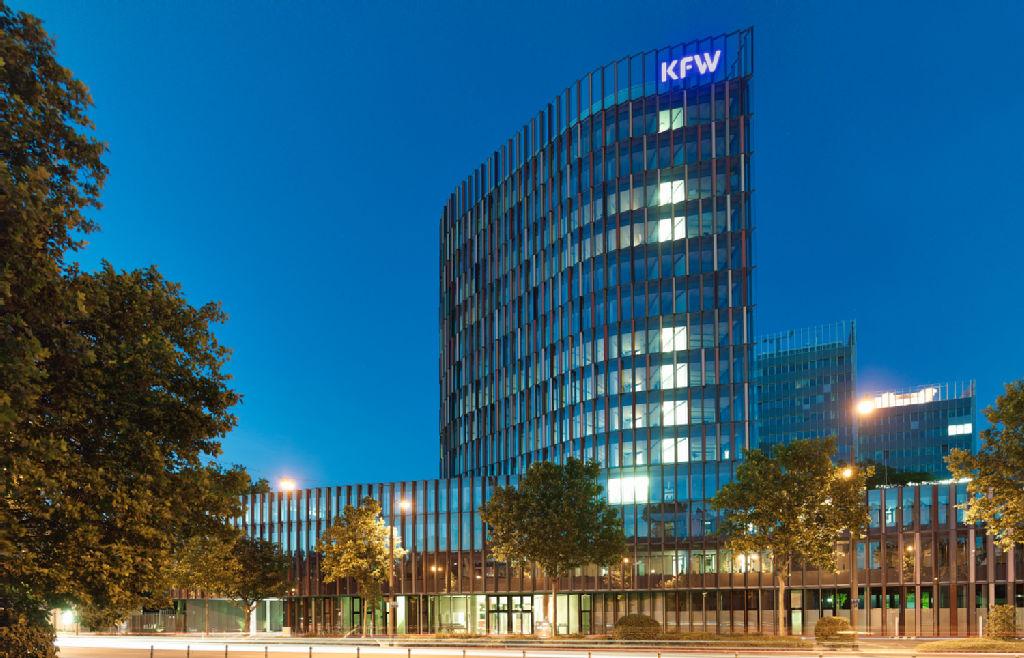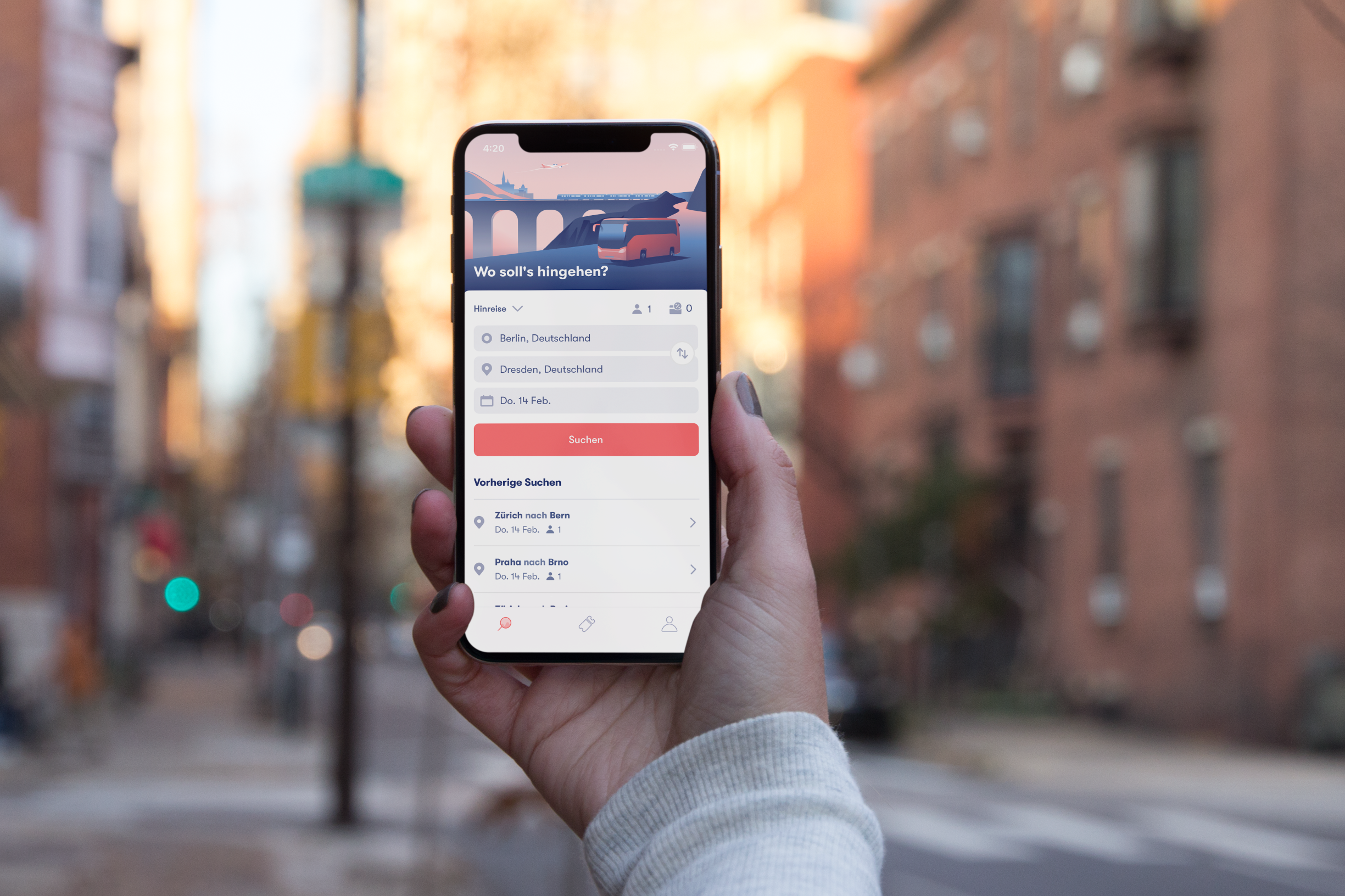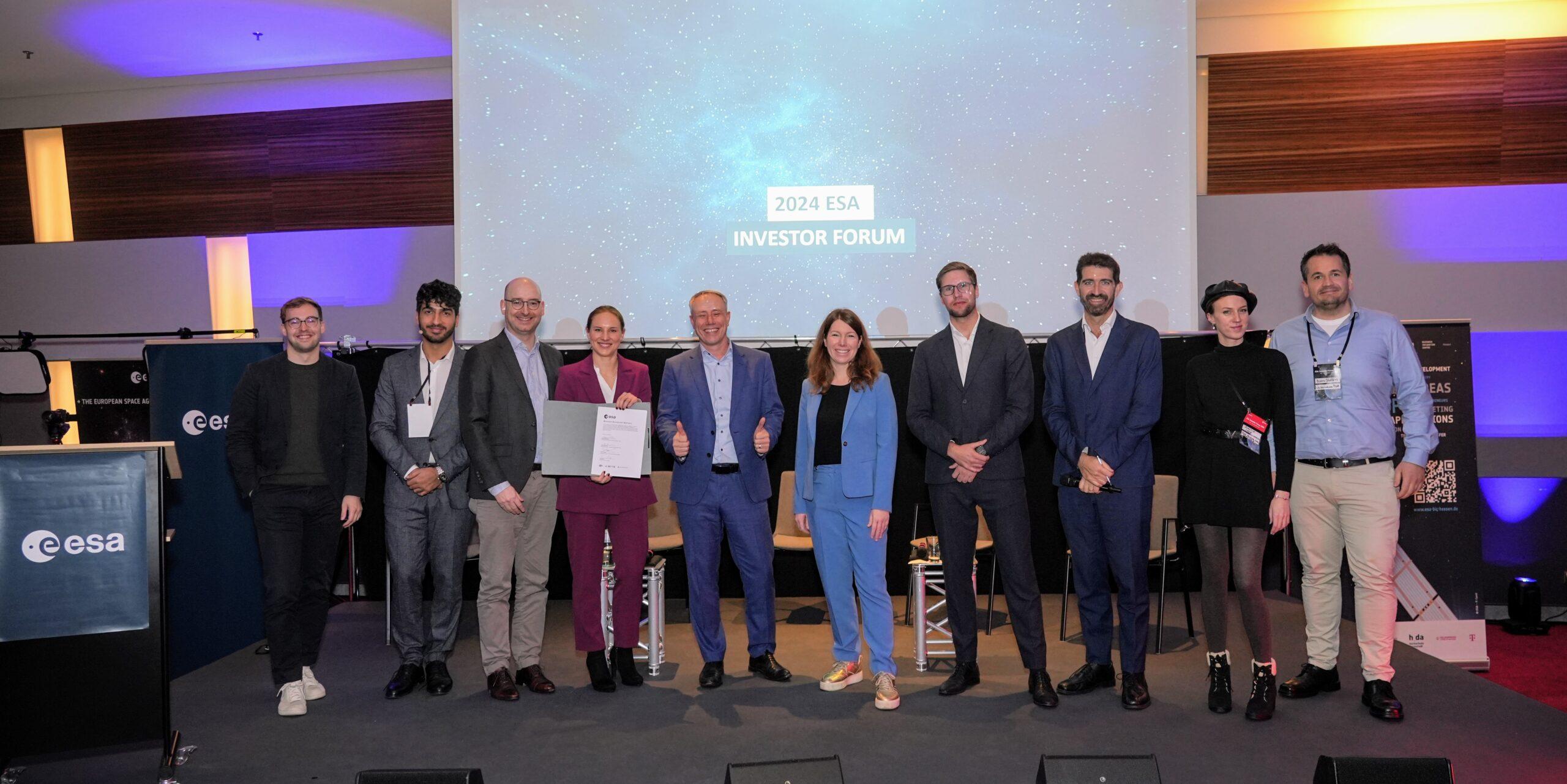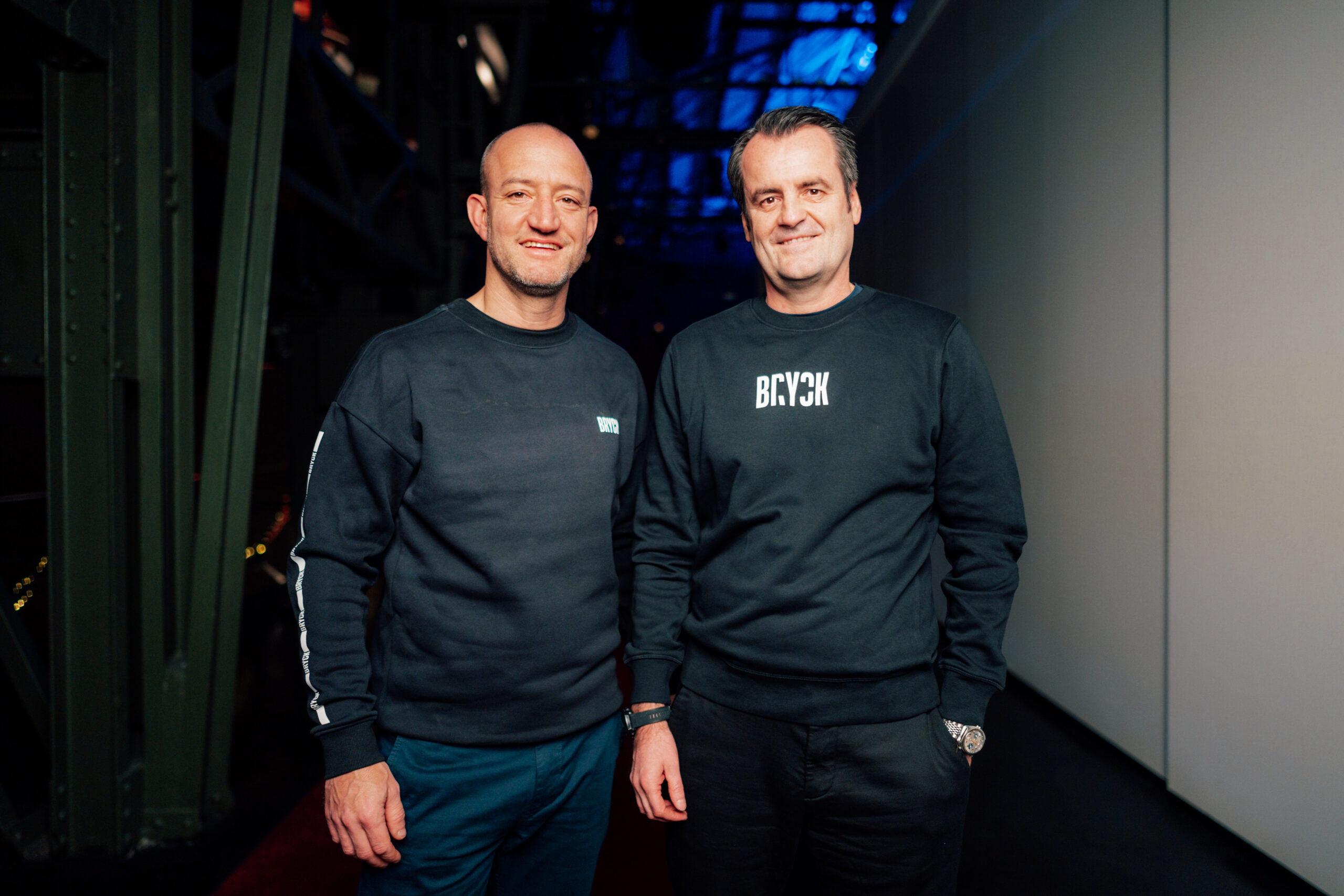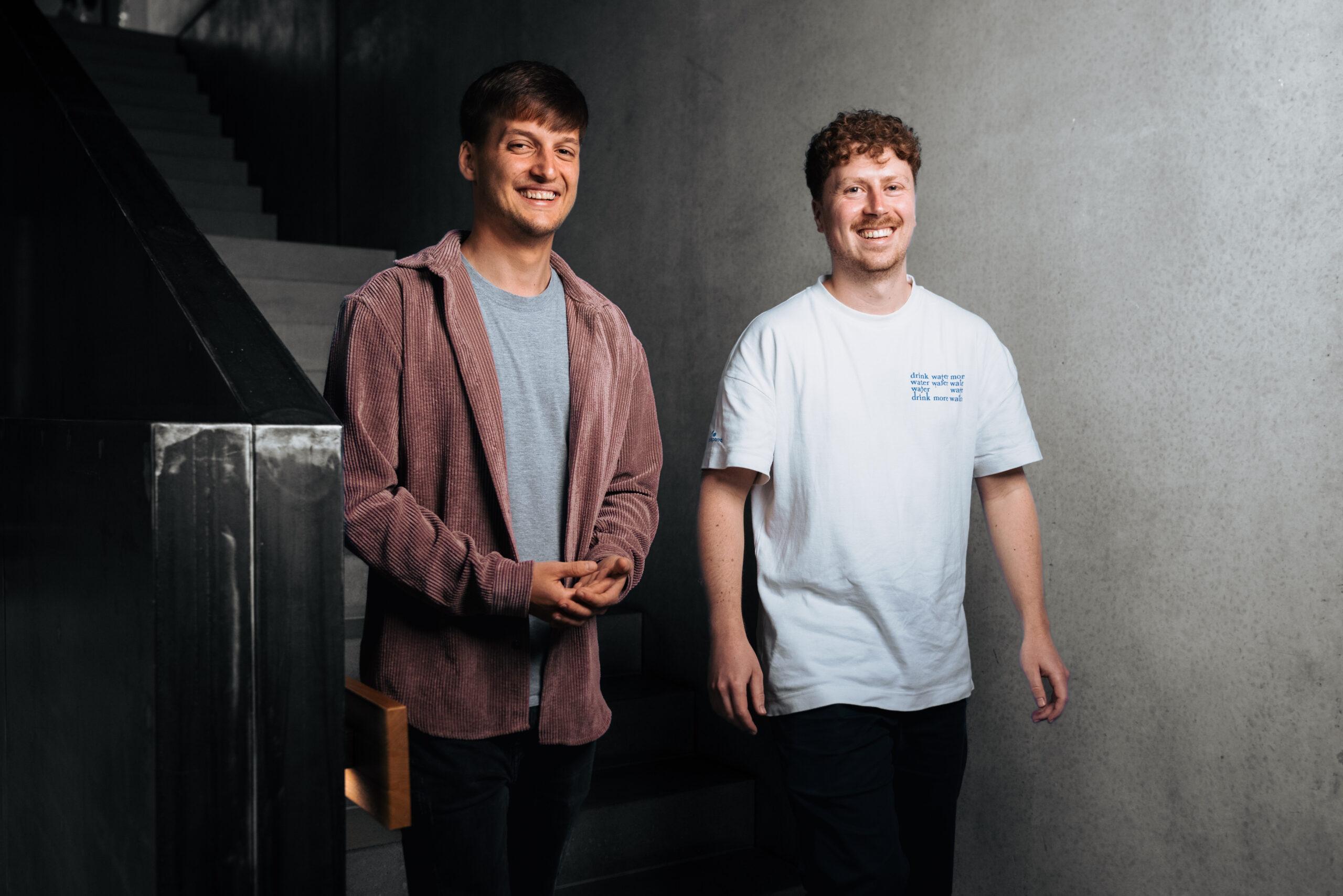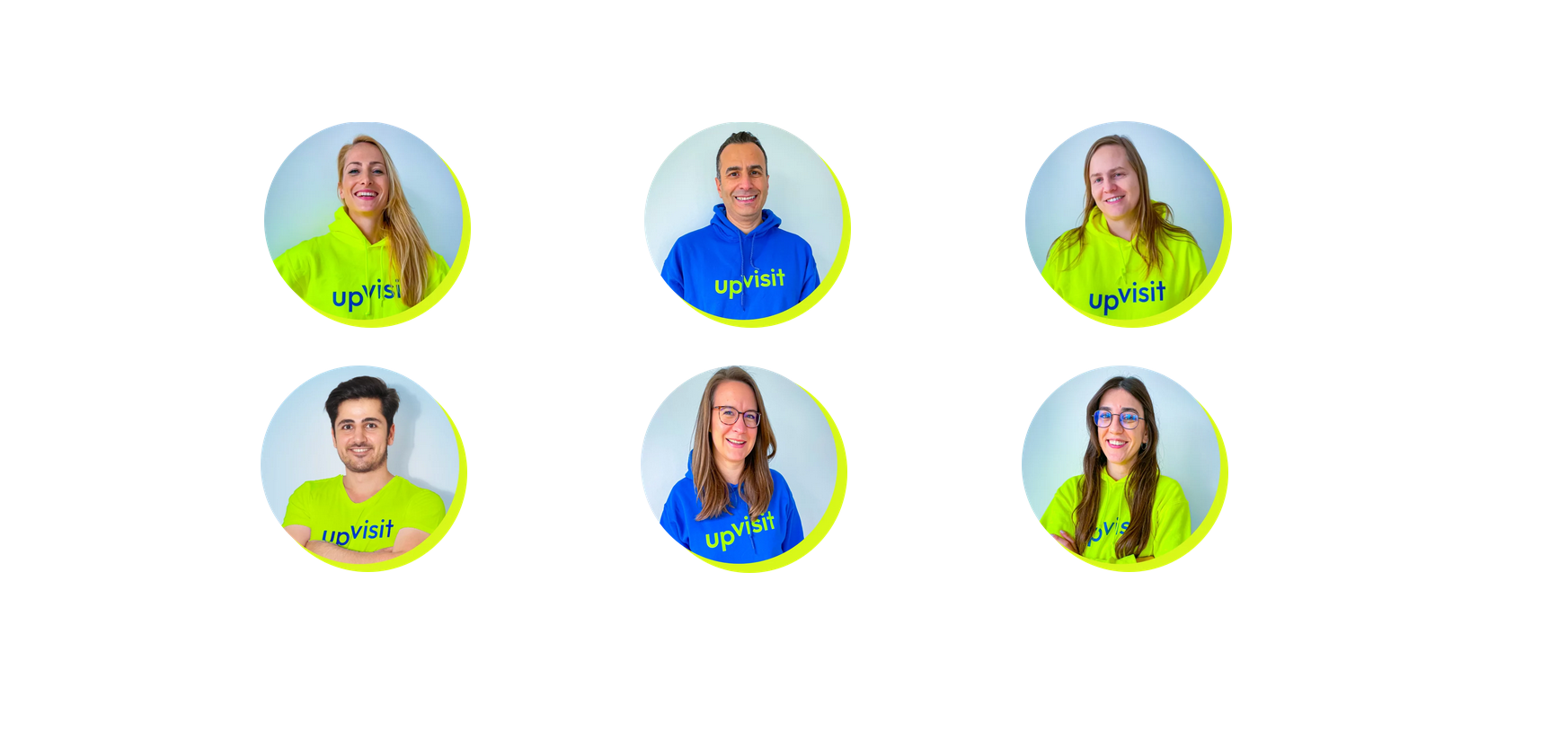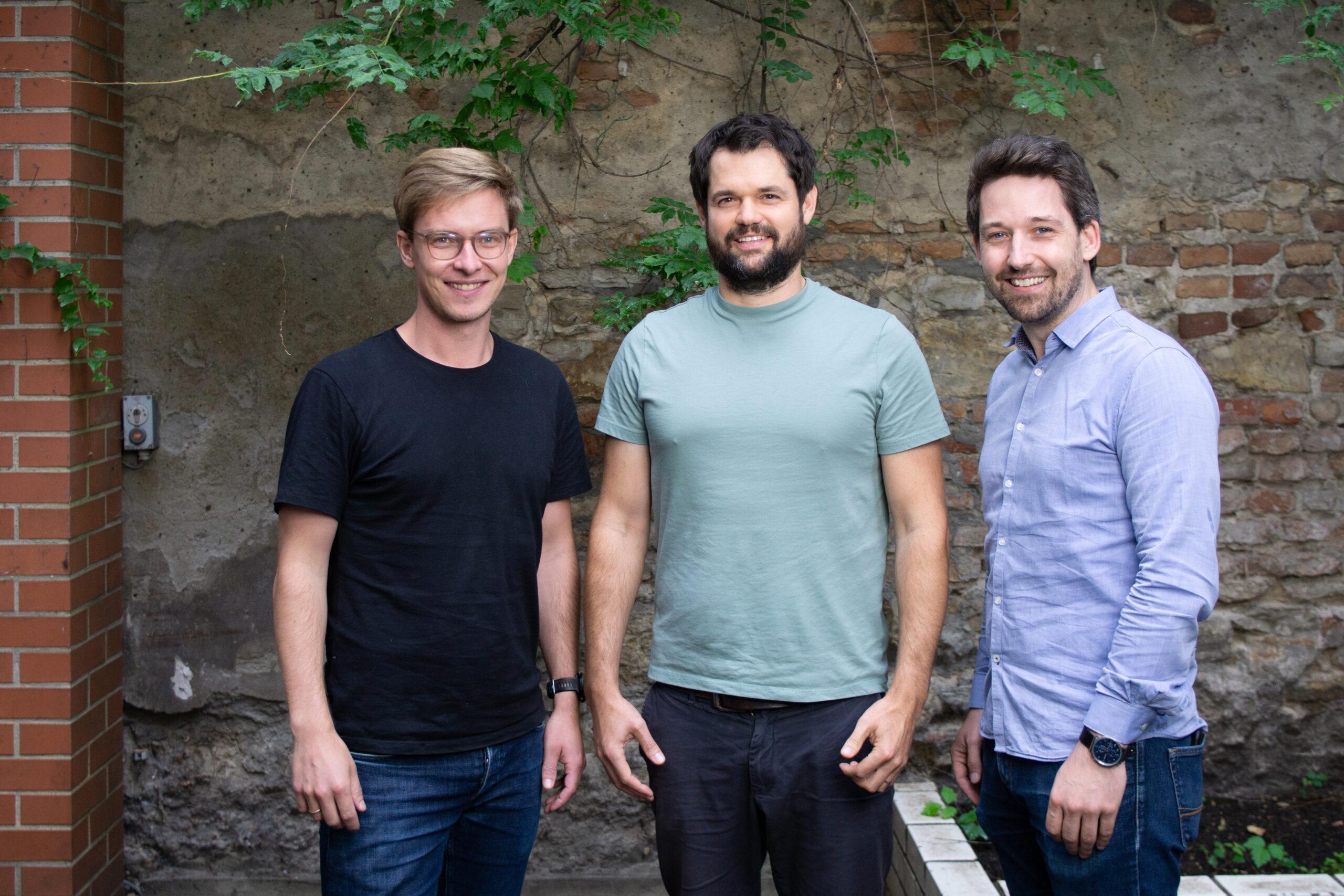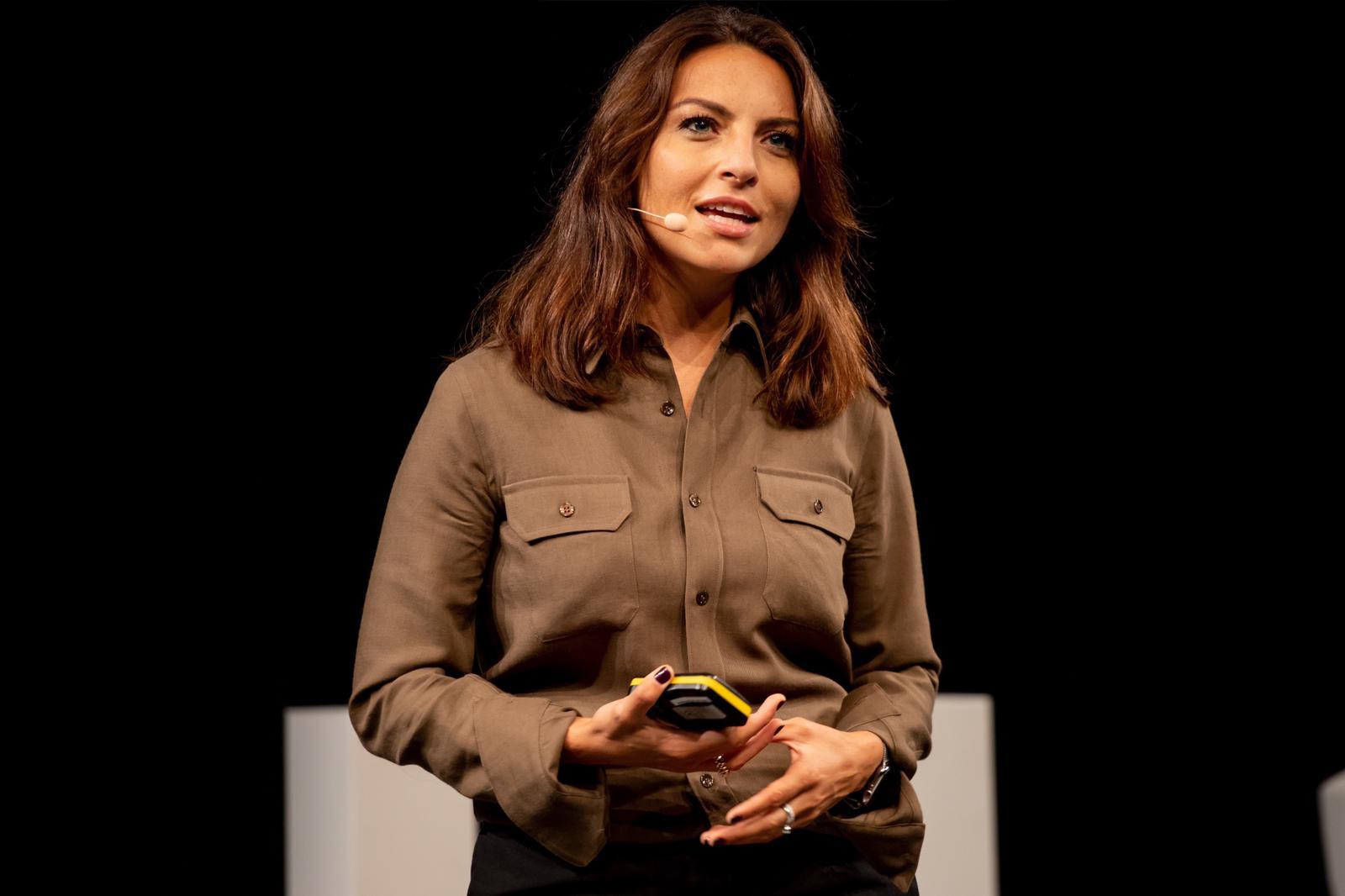This founder solves the vaccination certificate problem for millions

The Leipzig-based start-up Apo Pharma Immun is one of the most important in Germany due to coronavirus: it prints the QR codes for EU vaccination certificates on plastic cards. Half of all pharmacies work with it. Now it has to defend itself against imitators.
Tamim Al-Marie is a friendly person who likes to laugh and talk, but never digresses. Sentences like "I must have had the right instinct" sound modest to him. But he doesn't have to be. Because Tamim Al-Marie has achieved something that few founders manage: he was in the right place at the right time, was one of the first to recognize the opportunity - and had a business model ready before others.
It took him just six months to make his company profitable after it was founded - and he grew at the same time. In November, his start-up reached up to 100,000 new customers a day in some cases. Al-Marie is the man behind the Immune Card. Anyone who uses it does not have to show a yellow vaccination card or the QR code on their smartphone. That alone is practical for all those whose cell phone battery is constantly empty. The first imitators now see it that way too, and Al-Marie is trying to take legal action against some of them.
The first time he was in the right place to develop the immunocard was in 2017, when Vision.a, a digital conference for the pharmaceutical and pharmacy industry, took place for the second time. The stage at Berlin's Radialsystem was bathed in red-orange light. Al-Marie, a pharmacy student at the time, was one of the 300 participants. At the conference, he learned about the industry's vision for the future. "I decided that I wanted to be part of this future - and to found my own start-up after graduation to make the pharmacy world more digital," he says. A short time later, he was working as a student trainee at the Leipzig-based company builder 2b Ahead Ventures.
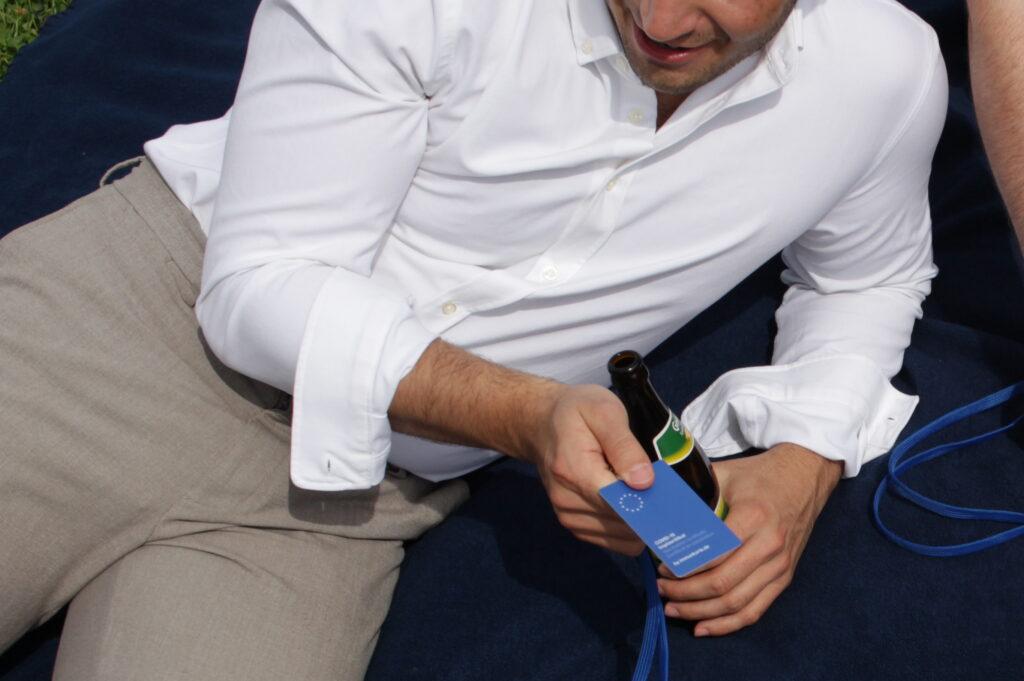
Al-Marie fulfilled his dream a few years later. In January 2021, he received his license to practice medicine in Halle. The city is his hometown and place of study; his father once came to the GDR from Syria. He founded his first start-up, Apo Pharma Immun GmbH, in February. 2b Ahead Ventures contributed seed capital of 34,000 euros.
Then everything happened very quickly. Within a few months, Al-Marie turned his company into one of the most important in Corona Germany. Apo Pharma Immun prints the QR codes of the official EU vaccination certificates on plastic "immune cards". Customers can order them directly from the pharmacy. Over three million cards are already in circulation. A card costs 9.99 euros. If you are boosted and need a second one, you only pay 7.40 euros for this one.
Apo Pharma Immun was profitable after six months
Demand was so high at times that Al-Marie's team had to work with six to seven printing companies. The waiting time increased from seven days to weeks. Back then, between eight and ten people worked part-time and full-time for Al-Marie; today there are 20, including IT specialists, pharmacists and students.
"I haven't become a millionaire yet, nor do I have a yacht," says Al-Marie. She calculates the margin tightly. "There's more to card production than meets the eye. The marketing alone accounts for a large part of the costs, the pharmacies receive around 3.50 euros per card." Last year's turnover was around 30 million euros, while profits were significantly lower, according to the founder.
In the meantime, the competition has also woken up. Al-Marie is completely fine with pharmacies copying his concept and printing their own solutions: "I see it more as confirmation." However, he is taking action against trademark infringements by other providers, some of which are dubious: "The main issue here is that some people are trying to deceive customers on less reputable websites," he says. "If you googled the keyword 'Immunkarte', you quickly landed on other dubious websites that claimed to sell our product." Al-Marie then contacted his lawyers. They told him that in some cases there might not even be a real company behind it - and that customers might not even receive a product after making a purchase. "In the interests of our customers, we took action against these dubious sites."
How recognized is the Immunkarte?
But how reputable is the Immunkarte itself? Is it recognized everywhere? It is not easy to get an official answer to this question. The Federal Ministry of Health (BMG) does not comment on offers from individual providers. A spokeswoman merely pointed out that it is possible to "show a printout with the corresponding QR code". When asked, the Robert Koch Institute (RKI) also merely stated that it does not comment on products.
The Federal Police are clearer: "If the immunization card contains the valid QR code of the digital EU vaccination certificate from the Robert Koch Institute (RKI) and the information on the immunization card can be scanned and checked with the RKI's Covpasscheck app, the immunization card is proof of vaccination within the meaning of the Coronavirus Entry Regulation," it states.
In principle, it is therefore also valid for entry checks in restaurants or hotels, as a spokeswoman for the German Hotel and Restaurant Association (Dehoga) confirmed in an interview: "It is important that the code can be scanned and is valid. Identity must also be established." Products such as the Immunkarte are useful additions to the paper and smartphone solution.

Newsletter
Startups, stories and stats from the German startup ecosystem straight to your inbox. Subscribe with 2 clicks. Noice.
LinkedIn ConnectFYI: English edition available
Hello my friend, have you been stranded on the German edition of Startbase? At least your browser tells us, that you do not speak German - so maybe you would like to switch to the English edition instead?
FYI: Deutsche Edition verfügbar
Hallo mein Freund, du befindest dich auf der Englischen Edition der Startbase und laut deinem Browser sprichst du eigentlich auch Deutsch. Magst du die Sprache wechseln?

